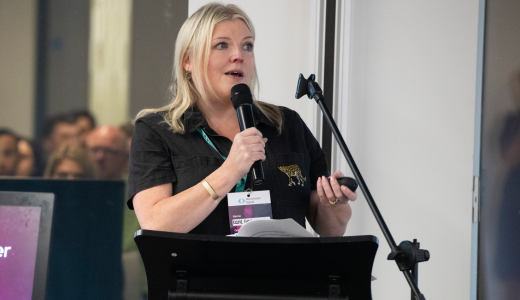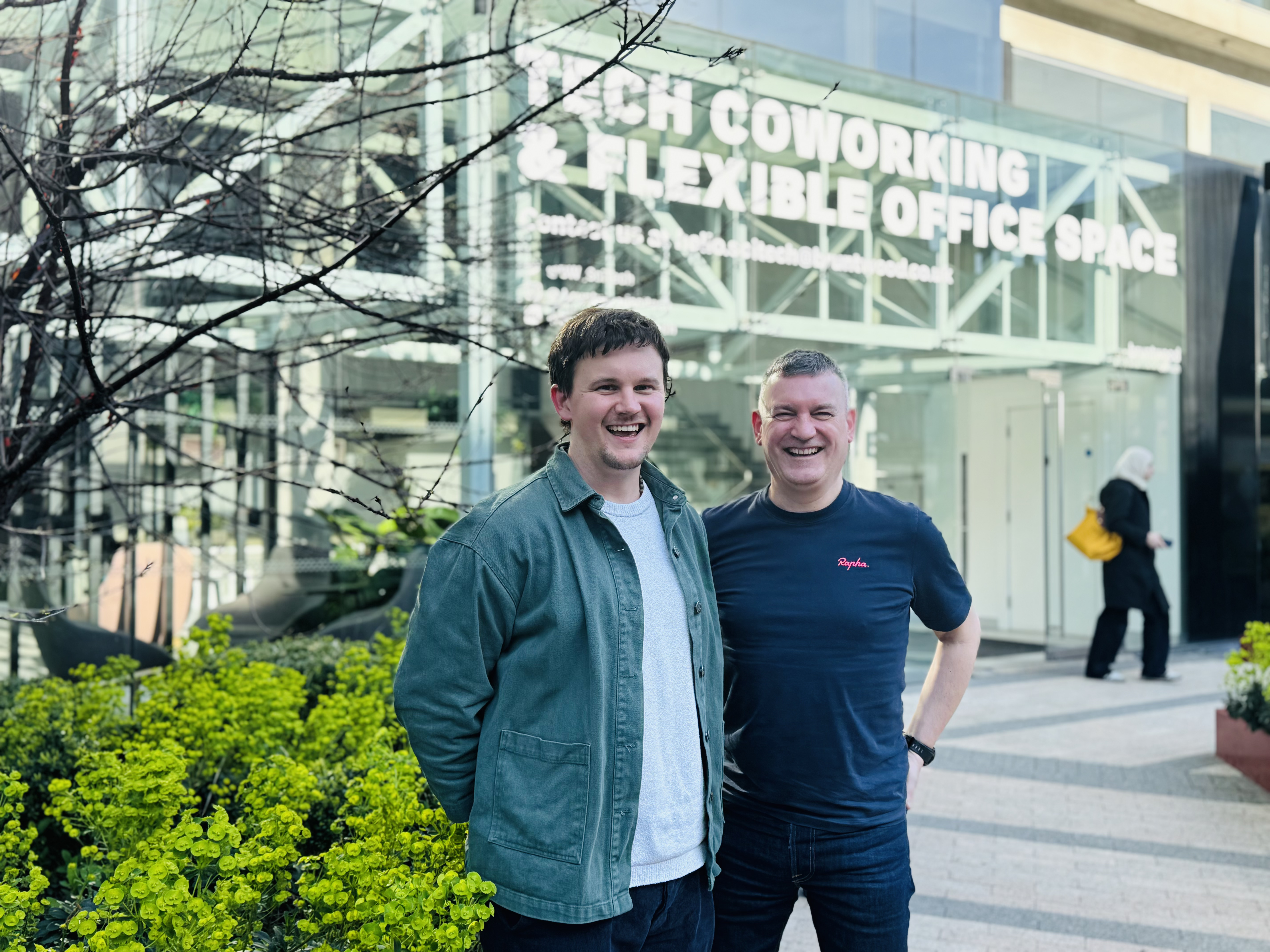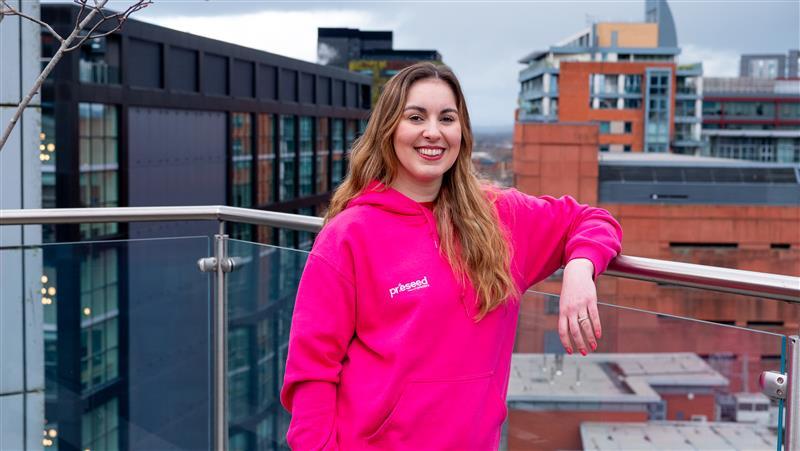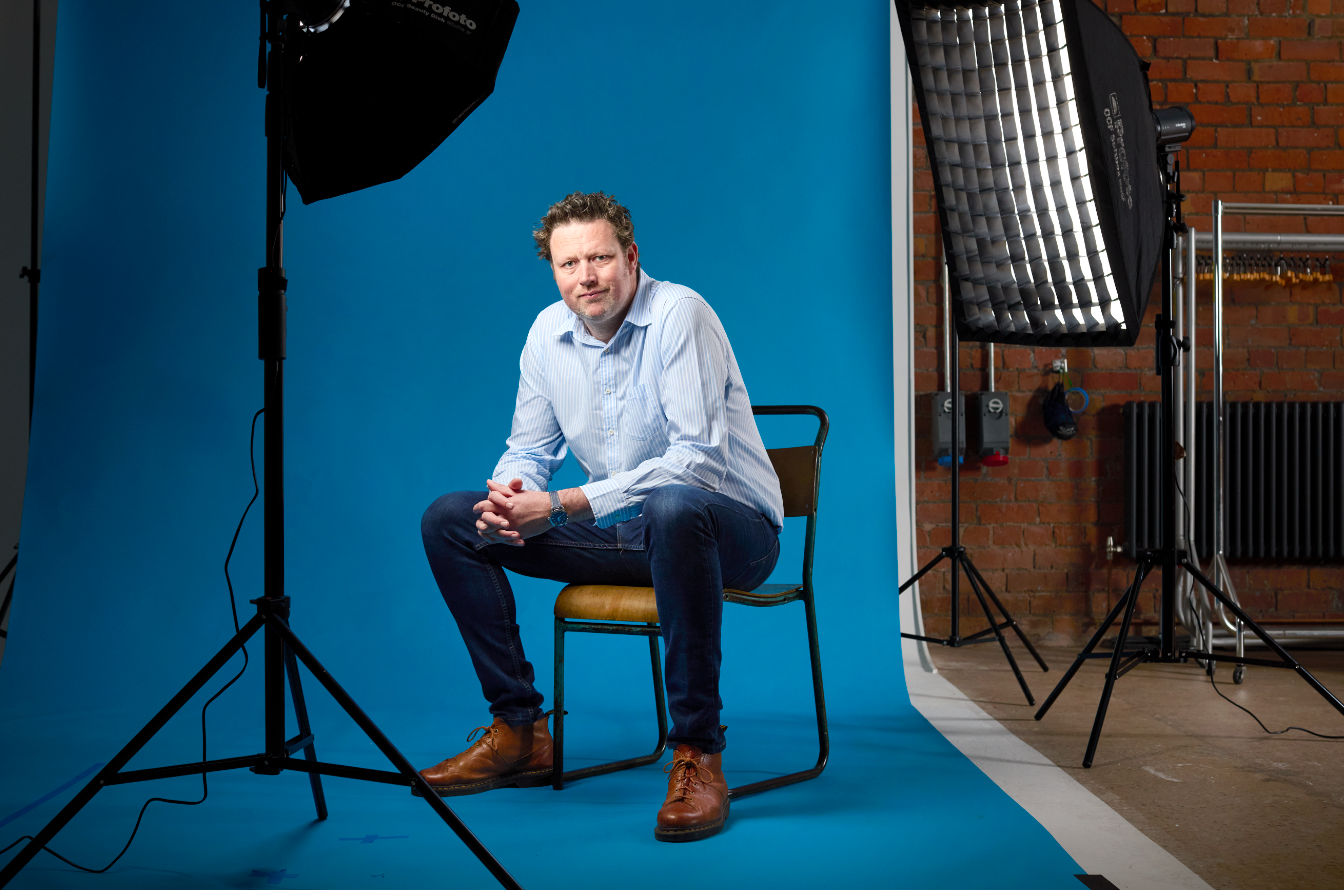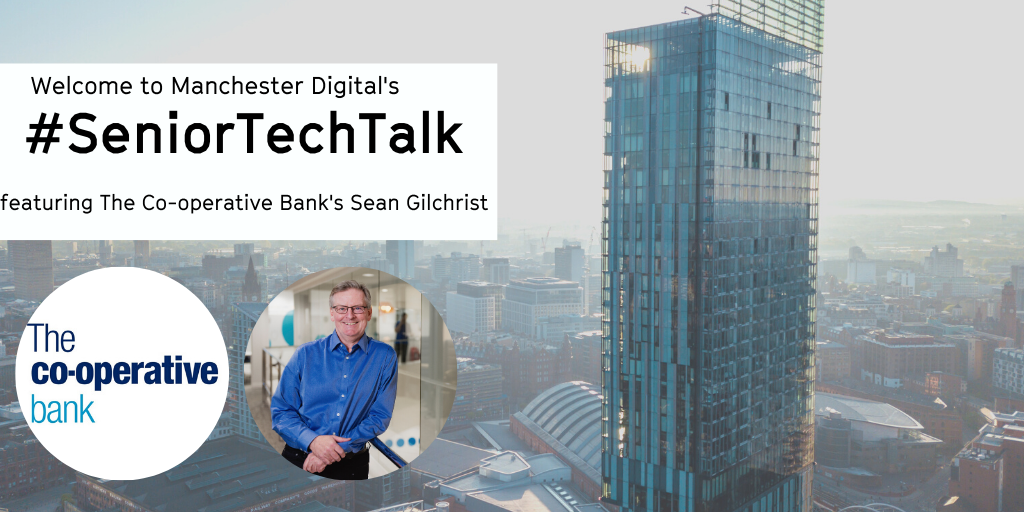
The Co-operative Bank is on a mission to build an ethical digital bank. As such, we thought we would catch up with its Chief Digital Officer, Sean Gilchrist, to understand what this means, and how the organisation is planning to make this ambition become a reality happen.
Could you tell us a little bit more about The Co-operative Bank as an organisation and your goals as a business?
The Co-operative Bank was founded in 1872 as the loan and deposit department of The Co-operative Wholesale Society. It's always had co-operative values and ethics as its foundation. In 1992 it was the first bank to introduce a customer-led ethical policy and, ever since, that policy has always been at the heart of what we are about.
The Co-operative Bank went through a period of difficulty in 2013 and following that, we ceased to be owned by The Co-operative Group from 2017. Last year we had our new CEO appointed, and he's put together a new executive team, which is focused around how we turn things around, get it back into profitability with the overall mission around building an ethical digital bank.

And could you please explain your role within the company?
So, I'm the chief digital officer at The Co-operative Bank; a new role for the company. When people ask me “what does that mean?” I always say it's about digitising our offering and not just the obvious things. It’s about more than the online banking platform, websites and mobile banking application for both our personal and small business customers, It's also looking at how we create an environment where we can operate at pace. Yes the technology is important, but actually, the bigger part of the whole digital transformation process is actually a cultural change – and it's my job to drive that. When people ask me, "Well how do you know you've done it?" That will be when we move from being a bank that does technology to a technology company that does banking. But specifically and importantly for us and who we are; one that does so in an ethical manner and in accordance with co-operative values.
How is technology changing the banking sector? How is it changing consumer expectations?
Today, what our customers, or people in general want, is to have their bank in their pocket. When I was young, the bank in my pocket was my debit card and credit card. Actually what they want now is a fully-transactional bank, which of course is mobile banking, the mobile banking apps that we all have. And it's the ability to do your transactional banking very easily, safely and securely, and whenever and wherever you want to do it.
It’s also more and more important that we look after our customers. Even though I'm the digital guy, I still believe that, actually, people in banking are very important. When you take on a loan or a mortgage, you're taking on a financial commitment and when it's the first time you've done that you often want to sit down with somebody and be reassured that it's the right thing for you to do.
Also, if you ever get into financial difficulty or you're starting a new business, again it's good to have someone you can go and talk to, who can help you to understand what the options are and what might be the best choice to make. And, if you think back, what I'm kind of describing is a little bit like what a bank manager used to do a couple of decades ago, and in my view that's almost where the industry needs to get back to for some banking needs and requirements.
If we can give people the transactional elements of their bank in their pocket, this technology, alongside having the right people in branches and contact centres to support customers at key moments, will lead to good outcomes for them and their finances.
With consumers wanting a fully-transactional bank in their pockets. What steps has The Co-operative Bank taken to meet these challenges?
We relaunched our mobile app earlier this year, and part of that relaunch was actually building a completely new app. These steps have allowed us to improve the functionality and usability for our customers.
We've made almost a release a month this year for the new app, these updates have been based on what we see our customers doing on the app, so we have improved little things as we’ve noticed them. We have a very engaged customer base who are very quick to give us feedback about things. There's a number of things that we've launched based on what our customers told us. In fact, the first big release we did after the launch was almost entirely based on customer feedback.
We also dedicate a lot of time to making sure that we get the communication right with our customers. We tell them what our plans are, we tell them, based on what they told us, ‘this is what we're doing’. And we constantly invite them to tell us what they'd like next. And the reason for that is, actually, if you are going to be a customer-led organisation, you need to really put that at the heart of your business. I have an opinion on things, naturally, but until I go and check it with customers, It's just my opinion. So we have a very disciplined approach around everything that we do, we user test everything to make sure our work is truly people-focused.
So you mentioned The Co-operative Bank want to be a customer-led organisation, how have you gone about achieving this?

It's about following up with what you say with action. We said "We want to become a digital ethical business. As a result we invested in our digital team and acquired the talent we’d need in house.
When we said, ‘we’re going to be customer-led organisation" we demonstrated a commitment to this through doing user testing, and listening to the user testing and then developing and putting live what we discovered was wanted.
In fact we’re sitting in our usability lab now, we have customers in every month testing different things that we're able to robustly analyse, this is testament to our commitment to be customer-led.
And in terms of attracting talent to the organisation, is that something that you find easy or struggle with?
We're on a journey with it to be honest. I have been here less than a year and I inherited a really good team. We're still building and we are recruiting and the Manchester market is a very competitive market in the digital space. Everybody that I talk to says the same thing. I think, for me, you constantly need to think about how do you appeal to talent. And I don't believe it's all pay driven, although that helps, it’s also about how do you create the right environment for people to come in and work in and the other rewards and benefits that having a good culture bring.
And again, the co-operative values and ethics seems to resonate with people, and people choose to come and work here because of that. So that's a great strength of ours. We practice that as much with colleagues as we do with customers. And then, the second part of that is then finding some interesting, cool stuff to do. So people look at me quizzically when I say that and kind of go, "Hang on a minute, this is a bank." But actually, if you think about it, we do some pretty cool stuff. Just because you work in a very regulated environment, you’re still allowed to build great customer journeys and create some quite innovative design.
Manchester is developing a reputation as a centre for fintech excellence. What more do you believe needs to happen for the sector to grow in the region?
I think we just need to keep nurturing it. Keep focusing on it, not just fintechs but any startup business, this is one of the things we are doing to improve our SME offering and support the SME businesses that we work with. So we're very focused around the ‘S’ of SME, and very keen to help them. Recently, alongside Manchester Digital, our team invited some of our SME customers in to learn more about how to run a digital business and some of the hints and tips of the trade. I think the more fintechs, and other SMEs realise that Manchester is a good place to come and set up the better. If we can keep creating, encouraging, mentoring and supporting, it'll grow as a sector.
What work does The Co-operative Bank do to be a part of Greater Manchester's digital community? How does that benefit the business?
The Co-operative Bank is proud to be the only bank headquartered in Manchester, it’s a great heritage. I think if you look back to the roots of banks, they've always been a part of the community and a pillar of the community and I think even in this digital age, there's still a role for banks to play that. But the way that we do it will be different because we'll do it through a much more digital medium than people have had in the past.
To support the community, it’s important that we have North West partners, which is why we’re pretty active in the wider business community, doing things like sponsoring SME awards and being keen Manchester Digital members. We also have a strong partnership with the UK’s leading youth homelessness charity, Centrepoint, and have worked with them since they set up in Manchester in 2017. Lots of us will be sleeping out in in the next few weeks to raise awareness and much needed money to help homeless young people in Manchester, but also to support their work across the UK.
What do you predict Manchester's technology sector will look like in 10 years?
The one thing I think we can say for certain is it will be very different from what it is today. I think the pace that technology's moving on will continue to accelerate. I think the pace people are adopting the right technologies will continue to move on. I think the way we work will change significantly in the next 10 years. And it's really interesting, when you talk to undergraduates thinking about whether they continue their studies or whether they start their career, you often say to them, "Well, just think quite flexibly because actually the working world is going to change dramatically and the jobs you are probably going to end up working in don't exist today." And people look at you a little bit mad and then I go to them, "Yeah, but the job I do didn't exist when I started work." I think over the next 10 years, all that's going to happen is that the pace of change is going to quicken. And there's a lovely saying which says, "Welcome to today, the slowest day of the rest of your life."
What can The Co-operative Bank learn from the challenger banks like Monzo and Starling? What's the feeling towards them within the company?
Speaking personally, I love them, and the reason I love them is because they're disruptive. And I think with an established industry like banking, whenever you get disruption going on in it, that's healthy. If you're a more established organisation, it means you can't be complacent. You need to constantly look at what's going on with the challenger banks and constantly think about how are they appealing to their customers and how do we at least match, if not better, the types of services and propositions that they come in with. So I think a healthy fintech sector is really important for the survival of the banking industry as a whole because it'll keep us all on our toes, innovating and hopefully doing better things for our customers every day.

